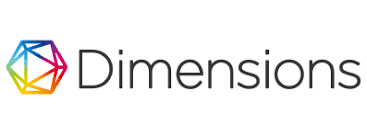A Halal Tourism in Indonesia - Case Study in Lombok, West Nusa Tenggara
DOI:
https://doi.org/10.36276/mws.v22i1.496Keywords:
Halal tourism, Muslim Friendly Tourism, Lombok, West Nusa TenggaraAbstract
The present study aims to conduct implementation of halal tourism in Lombok, as the best halal tourism destination in Indonesia. The topic that will be presented through interactive data analysis until the data is saturated is about Halal tourism institutional, Community empowerment, Community participation, Marketing, Halal tourism investment development and Penalties for violating the provisions of halal certification. A semi-structured interview approach to key informants. The results show that the implementation and development of halal tourism on the island of Lombok is still in its early stages. Indonesia has an organization that guides Islamic economic and financial law for halal tourism fatwas and halal certification. The local government and Indonesian clerical organizations have worked together to achieve halal tourism in Lombok. Efforts to create a halal tourism brand have not materialized due to natural disasters and the COVID-19 pandemic. It is expected that the causal chain frameworks developed in this study will provide a research roadmap for academics as well as insights for the government and the tourism industry in developing a halal tourism model in Indonesia.
References
Ali, A. A. G. X. M. S. A. (2017). Factors affecting Halal meat purchase intention – evidence from international Muslim students in China. British Food Journal, 119(3). https://doi.org/10.1108/eb011680
Annabi, C. A., Husein, U. M., Hassan, F., & Nasir, N. (2017). Sharia compliance in the construction industry: Is this something to build upon? Journal of Emerging Economies and Islamic Research, 5(1), 9. https://doi.org/10.24191/jeeir.v5i1.8793
Battour, M. M. (2010). Toward a halal tourism market. Tourism Analysis, 15(4), 461–470. https://doi.org/10.3727/108354210X12864727453304
Battour, M. (2011). The impact of destination attributes on Muslim tourist’s choice. International Journal of Tourism Research, 13(6), 527–540. https://doi.org/10.1002/jtr.824
Battour, M. (2016). Halal tourism: Concepts, practises, challenges and future. Tourism Management Perspectives, Vol. 19, pp. 150–154. https://doi.org/10.1016/j.tmp.2015.12.008
Battour, Mohamed, Ismail, M. N., Battor, M., & Awais, M. (2014). Islamic tourism: an empirical examination of travel motivation and satisfaction in Malaysia. Current Issues in Tourism, 20(1), 50–67. https://doi.org/10.1080/13683500.2014.965665
Bon, M., & Hussain, M. (2010). Chapter 4 Halal. In N. Scott & J. Jafari (Eds.), Tourism in the Muslim World (pp. 47–59). https://doi.org/10.1108/S2042-1443(2010)0000002007
Bonne, K., & Verbeke, W. (2006). Muslim consumer’s motivations towards meat consumption in Belgium : qualitative exploratory insights from means-end chain analysis. Anthropology of Food. https://doi.org/10.4000/aof.90
Bonne, K., Vermeir, I., Bergeaud-Blackler, F., & Verbeke, W. (2007). Determinants of halal meat consumption in France. British Food Journal, 109(5), 367–386. https://doi.org/10.1108/0070700710746786
Carboni, M., Perelli, C., & Sistu, G. (2014). Is Islamic tourism a viable option for Tunisian tourism? Insights from Djerba. Tourism Management Perspectives, 11, 1–9. https://doi.org/10.1016/j.tmp.2014.02.002
DSN-MUI. (2016). Pedoman penyelenggaraan pariwisata berdasarkan prinsip Syariah. Retrieved from https://drive.google.com/file/d/0BxTl-lNihFyzV0dPcEdtd0kwN2M/view?resourcekey=0-ZW0VKJGV2YqoVoRC4kuszg
DSN-MUI. (2019). Sekilas tentang DSN-MUI. Retrieved from https://dsnmui.or.id/kami/sekilas/
Fatah, R. A. (2006). Analisis Fatwa Keagamaan dalam fikih Islam. Jakarta: Bumi Aksara.
Fuseini, A., Wotton, S. B., Knowles, T. G., & Hadley, P. J. (2017). Halal Meat Fraud and Safety Issues in the UK: a Review
in the Context of the European Union. Food Ethics, 1(2), 127–142. https://doi.org/10.1007/s41055-017-0009-
Henderson, J. C. (2010). Sharia-Compliant Hotels. Tourism and Hospitality Research, 10(3), 246–254. https://doi.org/10.1057/thr.2010.3
Indonesia Hotel General Manager Association. (2021). Interview. Mataram.
Jafari, J., & Scott, N. (2014). Muslim world and its tourisms. Annals of Tourism Research, 44(1), 1–19. https://doi.org/10.1016/j.annals.2013.08.011
Jamil, M. (2010). Membendung Despotisme Wacana Agama. Semarang: Walisongo.
LPPOM-MUI Sumatera Utara. (n.d.). Sejarah LPPOM-MUI. Retrieved from https://halalsumut.org/sejarah-lppom-mui/
Mai, L.-W. (2001). Effective Risk Relievers for Dimensional Perceived Risks on Mail-Order Purchase. Journal of Food Products Marketing, 7(1–2), 35–52. https://doi.org/10.1300/j038v07n01_04
Ministry of Communication and Information of the Republic of Indonesia. (2019). 5 Tahun Kembangkan Pariwisata Halal, Indonesia Akhirnya Raih Peringkat Pertama Wisata Halal Dunia 2019. Retrieved from https://kominfo.go.id/content/detail/18069/5-tahun-kembangkan-pariwisata-halal-indonesia-akhirnya-raih-peringkat-pertama-wisata-halal-dunia-2019/0/artikel_gpr
Ministry of Tourism and Creative Economy of the Republic of Indonesia. Standar Usaha Hotel. , Pub. L. No. PM.53/HM.001/MPEK/2013, 1 (2013).
Ministry of Tourism and Creative Economy of the Republic of Indonesia. (2019). Rencana Strategis Pengembangan Wisata Halal 2019 - 2024.
Muzhar, M. A. (1993). Fatwa-Fatwa Majelis Ulama Indonesia, Study tentang Pemikiran Hukum Islam di Indonesia. Jakarta: INIS.
National, T. (2015). UAE hotels tap into Islamic travel market. Retrieved from https://www.thenationalnews.com/business/travel-and-tourism/uae-hotels-tap-into-islamic-travel-market-1.116275
National, T. (2019). 5 top halal holiday destinations around the world. Retrieved from https://www.thenationalnews.com/lifestyle/travel/5-top-halal-holiday-destinations-around-the-world-1.868798
National, T. (2020). Halal travel: the 10 most popular holiday destinations for Muslim women. Retrieved from https://www.thenationalnews.com/lifestyle/travel/halal-travel-the-10-most-popular-holiday-destinations-for-muslim-women-1.974405
Nugroho, B. P. (2018). Gempa M 7,0 di NTB yang Mengguncang Agustus 2018. Retrieved from detiknews website: https://news.detik.com/berita/d-4360617/gempa-m-70-di-ntb-yang-mengguncang-agustus-2018
Olya, H. G. T. (2018). Risk assessment of halal products and services: Implication for tourism industry. Tourism Management, 65, 279–291. https://doi.org/10.1016/j.tourman.2017.10.015
Stephenson, M. L. (2014). Deciphering “Islamic hospitality”: Developments, challenges and opportunities. Tourism Management, 40, 155–164. https://doi.org/10.1016/j.tourman.2013.05.002
Tieman, M. (2011). The application of Halal in supply chain management: In-depth interviews. Journal of Islamic Marketing, 2(2), 186–195. https://doi.org/10.1108/17590831111139893
West Nusa Tenggara Provincial Government. (2016). PARIWISATA HALAL. Retrieved from https://jdih.ntbprov.go.id/sites/default/files/produk_hukum/LD Perda No 2 Th 2016.pdf
West Nusa Tenggara Provincial Government. (2018). Desain Strategi Rencana Aksi Pariwisata Halal Nusa Tenggara Barat. Retrieved from https://www.kemenparekraf.go.id/asset_admin/assets/uploads/media/pdf/media_1568185794_1_DSRA_NTB_Nov_28.pdf
West Nusa Tenggara Provincial Tourism Office. (2018). Islamic Center, Ikon Wisata Halal NTB. Retrieved from http://www.disbudpar.ntbprov.go.id/islamic-center-ikon-wisata-halal-ntb/
West Nusa Tenggara Provincial Tourism Office. (2021). Interview. Mataram.
Zaywa. (2016). Halal Tourism worth $238 billion by 2019. Retrieved from https://www.zawya.com/mena/en/press-releases/story/Halal_Tourism_worth_238_billion_by_2019-ZAWYA20161115100252/
Zaywa. (2017). Indonesia developing halal tourism to make journey of Muslim travellers comfortable. Retrieved from https://www.zawya.com/mena/en/story/Indonesia_developing_halal_tourism_to_make_journey_of_Muslim_travellers_comfortable-ZAWYA20170417034518/
Downloads
Published
How to Cite
Issue
Section
Categories
License
Copyright (c) 2024 Dhimas Setyo Nugroho

This work is licensed under a Creative Commons Attribution-ShareAlike 4.0 International License.







